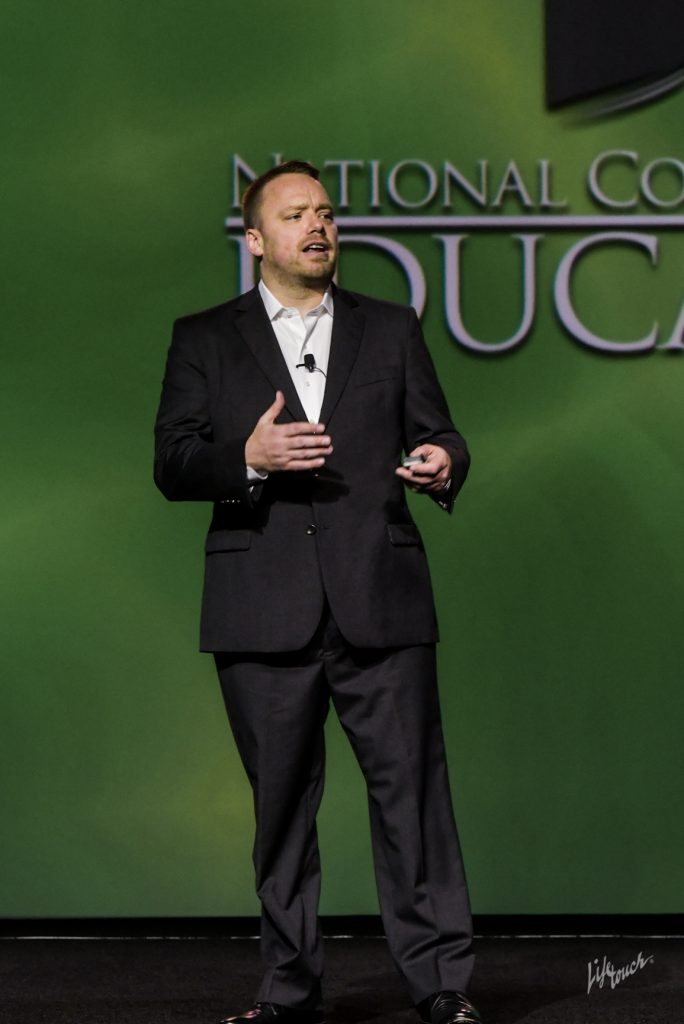Harvard University professor Todd Rose says the science of individualization is leading the charge in personalized education, commerce and health care – and we should all embrace it.
“If you want to build a system that is more personalized, averages don’t work,” Rose told an audience at his presentation at the AASA conference’s 2nd General Session in Nashville. “I think that these principles derived from the science of individuality provide a good foundation for scalable, personalized learning systems. We can design for this.”
Rose, co-founder and president of the Center for Individual Opportunity and a faculty member at the Harvard Graduate School of Education, is the champion of forgetting about averages. Repeatedly, the education system has used averages to a fault, he said.
Take the time allotted for standardized testing, he said. That came about from the average of numerous test takers. The fast test takers were called smart; the slow test takers were pegged as dumb.
To counter that flawed argument, Rose featured a chart showing that, if given flexibility and more time, the slower test takers would go on to dominate the subject matter.
“Kids look like they don’t get it until they do,” Rose said. “And when they do, they really do.”
Rose said personalization is making huge strides in science. There is no such thing as an average cell, average gene or average cancer, he said.
Personally, Rose is an example of his life’s work. He took a circuitous route to Harvard. A high school dropout and a father at 19, Rose, in most circles, was not considered an exemplary student or even average.
Rose found his passion later when researching how the brain, hormones and genes are not predetermined or fixed. He now spearheads a movement to end the rationale behind averages. He has shared his work with public education, calling for educators to rethink a system that will make its mission to tailor learning to individual students.
Educators can make strides, as science has in personalized medicine, transforming learning with flexible learning environments that can adapt to each child’s needs.
Or, he said, we can continue to make the mistakes of averages, as the Air Force did when it studied 4,000 pilots and came up with an average-sized cockpit. The design flaw of the average cockpit led to pilots making split-second decisions of life and death.
After they discovered the flaw of the study behind the cockpit, the Air Force received an influx of pilots who could perform within the technological advances of the planes.
Read blog posts by Sue Givens and Steve Matthews about this event.
(Chris Echegaray, a freelance writer in Nashville, is a reporter for Conference Daily Online.)

